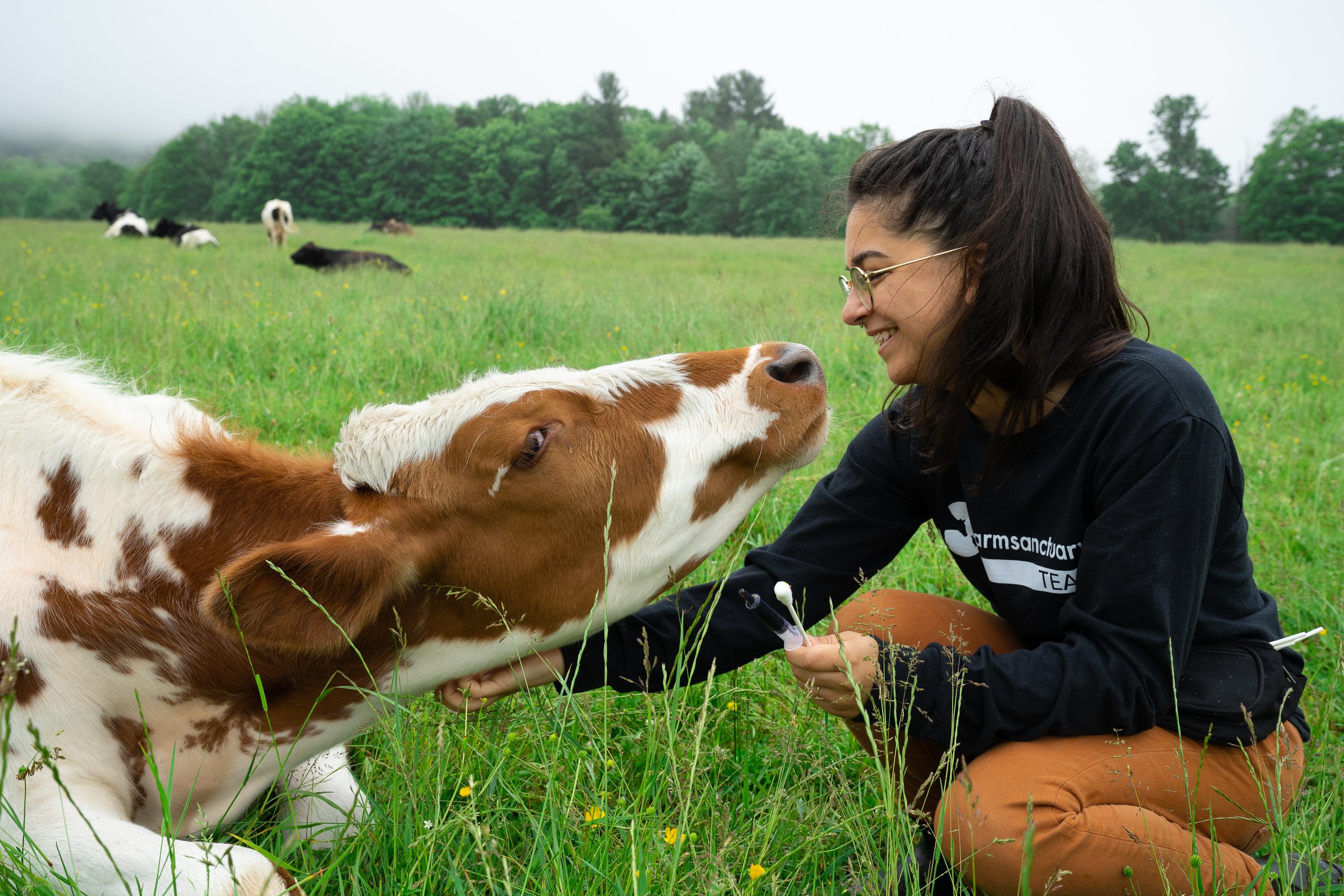Exploring The Heart Of Language: What "Sasha Prasad Mother Tongue" Might Tell Us
It's almost like a whisper, isn't it, when we think about someone's mother tongue? That first language, the one that shapes our earliest thoughts and feelings, it truly holds a special place. For anyone, really, their mother tongue is a profound connection to family, to culture, and to a very personal history. When we consider a name like Sasha, which seems to travel across many different places, thinking about a "Sasha Prasad mother tongue" brings up a whole world of ideas about identity and heritage. This concept, you know, it makes us wonder about the sounds and words that first filled someone's ears, guiding their understanding of the world around them.
The sounds of a mother tongue, they are so much more than just words; they carry feelings, they carry memories, and they carry a particular way of seeing things. It’s the language of lullabies, the language of childhood stories, and quite often, it's the language of our deepest emotions. For someone named Sasha, a name with such a fascinating background, the specific language they first spoke would tell us a lot about their roots, their family's journey, and the cultural tapestry they grew up within. So, this idea of a "Sasha Prasad mother tongue" really invites us to think about how language shapes who we are.
You might be wondering about the journey of a name like Sasha, too. It’s a name that has found a home in many different corners of the globe, actually. From its origins, which we can explore a little, to how it's used today by various people, the name itself carries a kind of linguistic history. When we talk about a "Sasha Prasad mother tongue," we are, in a way, looking at the very personal story that unfolds when a name meets a specific language and a unique cultural setting. It's a rather interesting thought, don't you think?
Table of Contents
- A Glimpse into Sasha Meneghel's World
- The Name Sasha: A Global Journey
- What is a Mother Tongue, Anyway?
- Language and Identity: A Deep Connection
- The Cultural Richness of First Languages
- Sasha and the Sound of Home
- FAQs About Language and Names
A Glimpse into Sasha Meneghel's World
When we talk about individuals named Sasha, one prominent figure that comes to mind from the provided information is Sasha Meneghel Szafir Figueiredo. She's a stylist and model, very well known in Brazil, you know. Born in Rio de Janeiro on July 28, 1998, she’s the daughter of the famous presenter Xuxa and the actor Luciano Szafir. Her life, it seems, has been quite in the public eye from a young age, so that's a bit of her story. She has also, in recent times, put effort into her own clothing brand, alongside her work as an influencer, which is pretty cool.
Personal Details: Sasha Meneghel Szafir Figueiredo
| Full Name | Sasha Meneghel Szafir Figueiredo |
| Date of Birth | July 28, 1998 |
| Place of Birth | Rio de Janeiro, Brazil |
| Nationality | Brazilian |
| Occupation | Stylist, Model, Creative Director, Influencer |
| Parents | Xuxa (presenter), Luciano Szafir (actor) |
| Known For | Fashion work, public figure, daughter of Xuxa |
Considering Sasha Meneghel's background, born and raised in Rio de Janeiro, Brazil, it's pretty clear her mother tongue would be Portuguese. That's the language that would have shaped her early interactions, her education, and her daily life. It’s interesting how a person's birthplace can tell us so much about their linguistic foundation, isn't it? This connection to Brazilian Portuguese would certainly be a key part of her identity, just like anyone's first language is for them, truly.
The Name Sasha: A Global Journey
The name Sasha, you know, it has a rather rich history and a very broad reach. It actually started among Slavic peoples, particularly in Eastern and Southern Europe, as a shortened version of the names Alexander and Alexandra. So, in some respects, it carries a meaning of "defender of mankind," which is quite a strong and positive association. It’s also used as a surname, apparently, which just adds to its versatility. This makes it a really interesting name to think about when we consider someone's linguistic background, because it pops up in so many different language environments.
What's quite unique about Sasha is that it's a unisex name. This means it can be used for both boys and girls, which isn't always the case for names, is it? This flexibility might be part of why it's so widely adopted and recognized across various cultures and languages. You see it appearing in different contexts, from a famous Welsh DJ like Alexander Paul Coe, known professionally as Sasha, to public figures like Sasha Obama, the youngest daughter of Barack and Michelle Obama. It just shows how a single name can have so many different stories and connections.
The fact that Sasha has Greek origins, coming from the name Alexander, means it has a really ancient lineage, too. This long history, spanning many centuries and regions, has allowed the name to weave its way into countless families and communities. So, when you hear the name Sasha, you're hearing echoes of many different places and times, and that's pretty cool. It really highlights how names can be little pieces of history themselves, carrying their own kind of journey through language and time.
What is a Mother Tongue, Anyway?
A mother tongue, or a first language, is essentially the language a person learns from birth or during the critical period of language acquisition, which is typically early childhood. It's the language that a child grows up speaking at home, with their family, and it's the one that forms the very foundation of their communication skills. This language, you know, it's not just about words; it's about the sounds, the rhythm, and the unique way of expressing thoughts and feelings that becomes second nature. It's often the language in which we dream, in which we count, and in which we feel most comfortable.
This initial language learning process is quite remarkable, actually. Babies and young children, they absorb their mother tongue without formal instruction, simply by being exposed to it in their daily environment. They pick up grammar rules, vocabulary, and pronunciation naturally, almost effortlessly. It's a rather beautiful process, watching a child discover their voice in their first language. This early immersion means that the mother tongue often shapes a person's cognitive processes, their way of thinking, and even their emotional responses to the world, very deeply.
It's important to remember that for some people, there might be more than one mother tongue. This happens in bilingual or multilingual households where a child is regularly exposed to two or more languages from birth. In such cases, both languages can serve as primary languages, equally foundational to the child's development. So, the concept isn't always as simple as just one language, which is fascinating. It shows how diverse human language experiences can be, and how different families navigate their linguistic heritage, you know.
Language and Identity: A Deep Connection
The connection between one's mother tongue and their personal identity is incredibly strong, actually. Our first language is often tied directly to our cultural heritage, our family history, and the community we belong to. It’s the medium through which we first learn about our traditions, our values, and the stories that define our people. For many, speaking their mother tongue feels like speaking from the heart, a very direct line to their innermost self. It's a fundamental part of who they are, quite literally.
When people move to new places or grow up in multicultural settings, their mother tongue can become a vital link to their past. It’s a way to stay connected with their roots, to communicate with older family members, and to preserve their unique cultural perspective. This connection can be a source of immense pride and belonging. So, for someone like Sasha Meneghel, her Brazilian Portuguese isn't just a way to talk; it’s a living bridge to her Brazilian identity, to her family's legacy, and to the vibrant culture of her homeland. That's a powerful thing, isn't it?
Losing touch with one's mother tongue can sometimes feel like losing a part of oneself, too. That's why many communities and individuals make a real effort to maintain and pass on their first languages to younger generations. They understand that language carries more than just meaning; it carries history, emotion, and a unique worldview. It's a continuous thread that weaves through generations, preserving a collective memory. So, the idea of a "Sasha Prasad mother tongue" really makes us appreciate the deep, personal bond people have with their first words and sounds.
The Cultural Richness of First Languages
Every mother tongue, you know, is a treasure chest of cultural insights. It holds specific idioms, proverbs, and ways of expressing ideas that are unique to that culture. These linguistic nuances often reflect the history, geography, and values of the people who speak it. For instance, some languages might have many words for snow, reflecting a cold climate, while others might have numerous terms for types of rice, showing its importance in their diet. It's a very clear window into a way of life, really.
The stories, songs, and oral traditions passed down through generations are almost always preserved in the mother tongue. These narratives are not just entertainment; they are vehicles for cultural knowledge, moral lessons, and historical accounts. They shape a child's understanding of their place in the world and their connection to their ancestors. So, when we consider the "Sasha Prasad mother tongue," we're also thinking about the entire universe of stories and wisdom that comes with that particular language, which is pretty amazing.
Furthermore, a mother tongue often carries specific social protocols and ways of interacting that are culturally significant. The way people address elders, express respect, or show affection can be deeply embedded in the language itself. This makes learning a new language more than just memorizing vocabulary; it's about understanding a whole new social code. For more insights into how languages shape our world, you might want to learn more about linguistic diversity on our site. It's a truly rich area of study, you know, how languages connect us to our heritage.
Sasha and the Sound of Home
Thinking about a name like Sasha, which is so widely used, and then pairing it with the concept of a mother tongue, it really brings home the idea of how diverse individual experiences can be. While the name Sasha might be familiar across many borders, the specific language a Sasha first spoke would root them in a very particular place and culture. A Sasha from Brazil, like Sasha Meneghel, would have the rhythm of Portuguese as her first language, while a Sasha from Eastern Europe might have grown up with Russian or Ukrainian, for example. It’s fascinating how the same name can have such different linguistic landscapes, isn't it?
The sounds of our mother tongue are often the sounds of "home." They are comforting, familiar, and they evoke a sense of belonging. It's the language of family gatherings, of inside jokes, and of shared experiences that no other language can quite capture in the same way. So, for any individual named Sasha, regardless of their background, their mother tongue would be the language that feels most natural, most intimate, and most truly theirs. It's a very personal connection, you know, that goes beyond mere communication.
It's also worth noting that in today's very connected world, many people are growing up with more than one language from the start. A "Sasha Prasad mother tongue" might even be two languages, or perhaps a primary language with strong influences from another, depending on their family's journey. This multilingual reality adds another layer of richness to their linguistic identity, allowing them to navigate different cultural spaces with greater ease. You can link to this page for more information on how languages intersect. It's a truly dynamic process, how language shapes us, and how we use it to express our very unique selves.
FAQs About Language and Names
What is a mother tongue?
A mother tongue is typically the very first language a person learns, usually from their parents or caregivers during early childhood. It's the language that shapes their initial thoughts and feelings, serving as the fundamental basis for all their future communication. It's the language that feels most natural and comfortable, really.
What does the name Sasha mean?
The name Sasha, which has Slavic and Greek origins, is a shortened version of Alexander and Alexandra. It generally means "defender of mankind." It's quite a strong and positive meaning, actually, and it's also a unisex name, used for both boys and girls across many different cultures.
Where does the name Sasha come from?
The name Sasha originated among Slavic peoples in Eastern and Southern Europe. It's a diminutive of the Greek name Alexander, which means "defender of mankind." This makes it a name with a very long history, traveling through various cultures and languages over time, so it's quite widespread.

Listen to music albums featuring Full Sasha Prasad Sasha Prasada Sasha

Sasha Prasad-Shreckengast

Sasha Prasad-Shreckengast